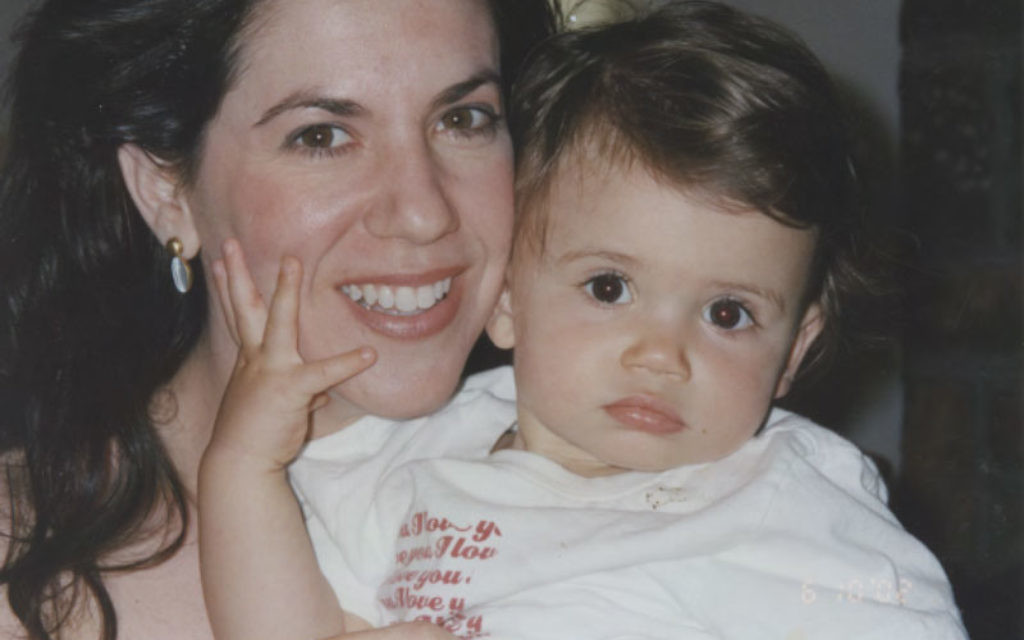Trust Your Judgment on Autism, Mother Advises
Expensive treatments often aren't the right option, author Whitney Ellenby says.

Parents of autistic children are routinely ripped off by exploitative vendors out for a buck, says Whitney Ellenby, an author and the mother of Zack, now 17, who was diagnosed with autism spectrum disorder at the age of 19 months.
Ellenby’s new book, “Autism Uncensored: Pulling Back the Curtain,” is an unbarred look at the travails of raising Zack and the unusual steps she took in doing so while navigating, and ultimately rejecting, numerous costly treatments that did little to help her son.
“Autism is its own universe and, as I’ve come to discover, a mercenary one. The range of medical and behavioral cures available to rid our children of what ails them is vast,” Ellenby writes, adding: “Hope predicated on the rarest of outcomes is not hope at all but a mirage dangled to induce payment.”
Get The AJT Newsletter by email and never miss our top stories Free Sign Up
In an interview with the AJT, the Jewish mother said: “The house always wins. The merchants are getting rich; whether your kid improves or not, they get paid … selling us on this fairy tale of mainstreaming. Even the very best that money could buy did almost nothing. The best intervention came when I stopped hemorrhaging money and took matters into my own hands and started getting him out into the world. And that was free.”
She added: “The odds are enormous that you’re wasting your money. Ask questions and demand answers before you lay out your hard-earned cash because the answers might be simpler.”
Published April 15, “Autism Uncensored” received extensive criticism even before its release. An excerpt in The Washington Post in February spurred calls for the book to be banned after readers said Ellenby’s motherly methods were tantamount to abuse. Of particular concern to some was an episode in which Ellenby took Zack to see a “Sesame Street Live” show.
“Nothing else had worked for Zack — flashcards, photos, play therapy, gradual exposure to feared indoor spaces. That is how, very much against his will, I ended up physically dragging Zack into Verizon Center one day 10 years ago to see his favorite character, Elmo,” she writes.
Though some of her strategies for Zack eventually proved valid, Ellenby was derided as evil, self-serving, shameless and offensive.

By Whitney Ellenby
Koehler Books, 340 pages, $29.95
In the interview, she addressed her critics: “If you can absorb the diagnosis of a lifelong incurable disability with a smile, good for you. You’re not going to shame me into silence for the way I felt or the fact that I chose to share it in an uncensored fashion with what I believe is a majority of parents who also feel the way I felt. You all don’t have the monopoly on pain.”
Ellenby is the founder of Autism Ambassadors, a nonprofit endeavor in Maryland that hosts recreational events for hundreds of families with children who have autism. She is not a representative of the autism community, she insists, and does not speak for anyone but Zack.
“I want every parent who is in pain to not feel ashamed of their kids and get them out into the world. Our challenges are real, and we have a right to make our situation as good as we can make it and to make our kids as functional as we can,” she said. “It can get better. The only way I have credibility is if I tell you how bad it was.”

Zack eventually grew less fearful and combative. “He is doing great,” Ellenby said. “By that, I mean he can go anywhere — the beach to snorkel, into a dark theater, get on an airplane, go to a Springsteen concert — whereas before he couldn’t do anything. It’s changed our lives enormously. He’s still autistic, but he’s joyful. He’s unafraid, a great companion. He’ll never be independent, though, and will always need an aide by his side.”
She writes that there are now interventions and therapies that did not exist when Zack was a child and that parents should use common sense in assessing their worth. “No medical opinion, no matter how competent or research-based, can supplant a parent’s intuition based on careful observation.”




comments